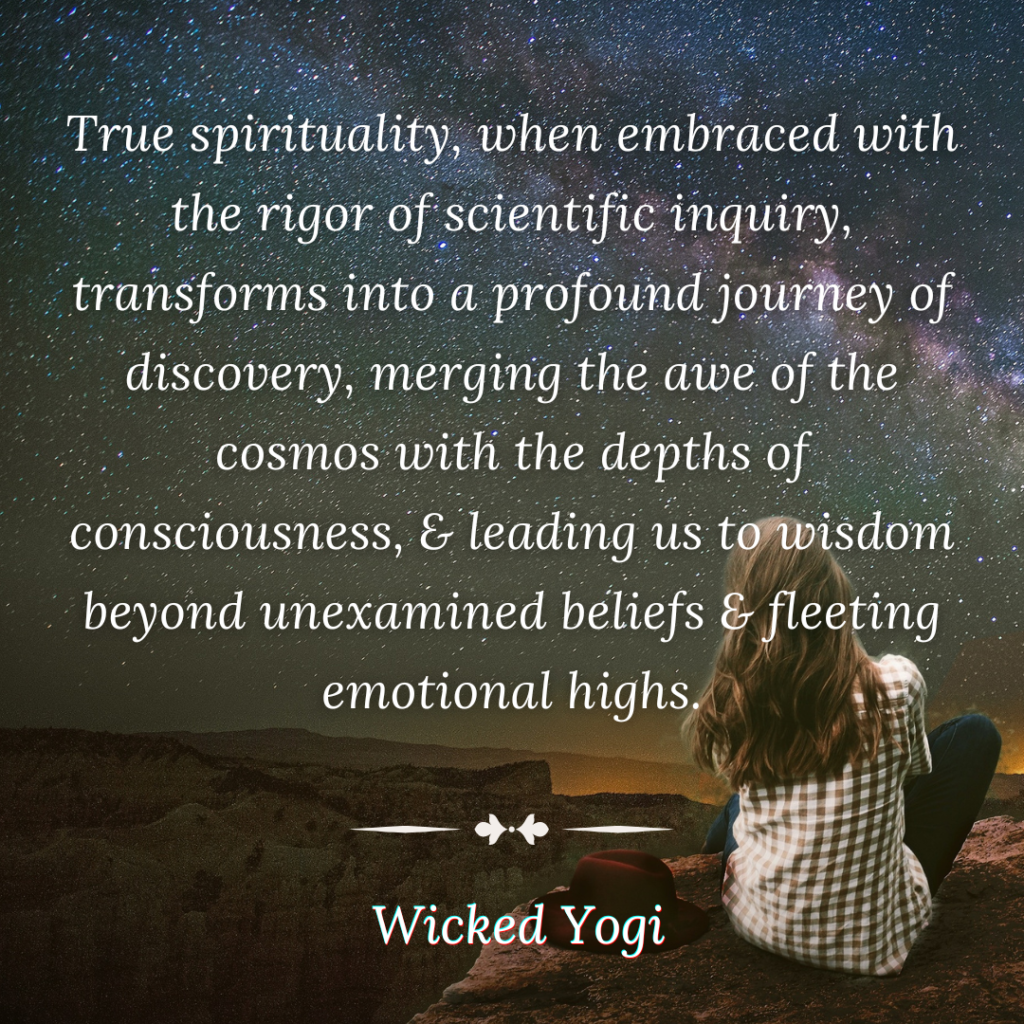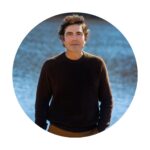In the intricate mosaic of human experience, science and spirituality have long been portrayed as opposing elements, their patterns seemingly at odds. Yet, as I delve deeper into the nature of existence, a profound truth emerges: authentic spiritual experience not only benefits from scientific inquiry but may very well be impossible without it. This realization, far from diminishing the value of spirituality, elevates it to a pursuit as rigorous and transformative as our greatest scientific endeavors.
At the heart of both scientific progress and genuine spiritual growth lies a paradox that has driven human understanding forward since time immemorial: the more we learn, the more we realize the vastness of our ignorance. This shared foundation of humility—the acknowledgment of the unknown—forms the bedrock upon which both disciplines build their quests for truth. Science, in its purest form, thrives on uncertainty. Each discovery, rather than closing the book on inquiry, opens new chapters filled with questions yet to be asked. Similarly, the most profound spiritual traditions emphasize the ineffable nature of ultimate reality, recognizing the limitations of human comprehension in the face of the infinite. Both paths require us to utter those three powerful words that have propelled humanity's greatest advances: "I don't know."
But why, one might ask, do we need spirituality at all in an age of scientific marvels? The answer lies not in choosing one over the other, but in recognizing their complementary nature. Science provides us with the 'how' of existence—the mechanics of the universe from quantum realms to cosmic expanses. Spirituality, when approached with the same rigor as scientific inquiry, offers insights into the 'why'—the meaning and purpose that give context to our existence within this magnificent cosmos.
"At the heart of both scientific progress and genuine spiritual growth lies a paradox that has driven human understanding forward since time immemorial: the more we learn, the more we realize the vastness of our ignorance.
Consider the scientific method: a process of observation, hypothesis, experimentation, and refinement. Now imagine applying this same methodology to spiritual experiences. Intriguingly, many spiritual practices already incorporate a key element of this approach: the art of detached observation. Just as scientists strive to observe phenomena objectively, spiritual traditions often encourage practitioners to become spectators of their own thoughts, emotions, and experiences. This practice of self-observation, akin to the scientific stance of an impartial observer, allows for a more objective analysis of one's inner world. The result is a spirituality that doesn't shy away from skepticism but embraces it, that doesn't cling to dogma but evolves with new understanding.
Just as scientists discard theories that fail to match observed reality, genuine spiritual seekers must be willing to abandon beliefs and practices that don't withstand scrutiny or fail to produce meaningful, reproducible results. This scientific approach to spirituality doesn't strip away the mystery and wonder of existence. On the contrary, it deepens our appreciation for the profound complexity of consciousness and reality. The awe felt by a physicist contemplating the elegance of universal laws mirrors the reverence of a meditator experiencing the depths of human awareness. Both stand at the precipice of the unknown, driven by an insatiable curiosity to understand more.
Moreover, the interconnectedness revealed by modern scientific disciplines—the intricate web linking quantum physics, biology, psychology, and cosmology—resonates deeply with holistic spiritual perspectives that have long emphasized the unity underlying all of existence. This convergence suggests that as we push the boundaries of scientific understanding, we simultaneously expand our capacity for profound spiritual insight. Critics might argue that subjecting spiritual experiences to scientific scrutiny robs them of their transcendent quality. Yet, isn't the opposite true? By rigorously examining our experiences, by questioning our assumptions and biases, we separate the wheat from the chaff. What emerges is a spirituality more robust, more authentic, and ultimately more transformative than one built on unexamined beliefs or fleeting emotional highs.
The awe felt by a physicist contemplating the elegance of universal laws mirrors the reverence of a meditator experiencing the depths of human awareness.
Consider the role of community in both scientific and spiritual pursuits. The peer review process in science ensures that new theories are tested, challenged, and refined before being accepted. Similarly, authentic spiritual communities can provide a space where individual experiences are shared, examined, and discussed. This collective approach to spiritual exploration mirrors the collaborative nature of scientific inquiry, allowing for a more comprehensive understanding of subjective experiences. However, it's crucial to acknowledge that unlike the scientific corpus, the body of knowledge in spiritual communities is often less formalized and can include unverified or problematic elements. The collective wisdom accumulated over generations, while valuable, requires ongoing scrutiny, revision, and refinement. There's a pressing need to apply more rigorous standards to spiritual knowledge, filtering out superstition and unfounded claims, to create a more reliable and beneficial repository of spiritual insight. This process of critical examination and continuous improvement is essential to elevate spiritual understanding to a level of credibility comparable to scientific knowledge.
As we stand on the cusp of unprecedented scientific advancements—from unraveling the mysteries of consciousness to exploring the farthest reaches of the universe—we find ourselves not moving away from spirituality but circling back to its most profound questions. Who are we? Why are we here? What is the nature of reality? These queries, once the sole province of philosophers and mystics, now occupy the minds of our most brilliant scientists.
In this light, the dichotomy between science and spirituality dissolves. I see them not as separate paths but as two wings of the same bird, both necessary for the flight of human understanding. True spirituality, infused with the rigor and skepticism of scientific inquiry, becomes not an escape from reality but a deeper engagement with it. It challenges us to explore the frontiers of our consciousness with the same dedication and meticulousness with which we explore the frontiers of our universe.
As I embrace this synthesis of scientific mindset and spiritual quest, I open myself to experiences more profound and insights more transformative than either discipline could offer alone. I cultivate a spirituality that is dynamic, evolving, and deeply relevant to our modern world—a spirituality that doesn't ask us to choose between faith and reason but invites us to employ both in our journey toward understanding.
In this confluence of cosmos and consciousness, of scientific inquiry and spiritual exploration, we find not just knowledge, but wisdom; not just information, but transformation."
In the end, the most authentic spiritual experiences may well be those that embrace the uncertainty and wonder that drive scientific exploration. By approaching our inner worlds with the same curiosity and rigor we apply to the outer world, we embark on a journey of discovery that is at once deeply personal and universal. This is the promise of a scientifically informed spirituality—a path that leads not to comforting illusions or unquestioned dogmas, but to a deeper, more nuanced understanding of our place in the cosmos and the nature of consciousness itself. In this confluence of cosmos and consciousness, of scientific inquiry and spiritual exploration, we find not just knowledge, but wisdom; not just information, but transformation. And in doing so, we honor the greatest gift of human existence: our capacity to question, to wonder, and to ceaselessly explore the mysteries that surround us and lie within us.




